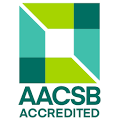
What you need to know …
AACSB’s Business Accreditation Task Force has released the proposed final draft of the revised 2020 Business Accreditation Standards. What do you need to know? Here is a summary of the top five questions…
1. If there are no physical meetings, how will the standards be approved?
AACSB is using a process call ‘Written Consent’ – which is applicable under local law. The key steps are as follows:
- The proposed standards have to be approved by a majority of the AACSB Accreditation Council. The Accreditation Council comprises educational organisations holding AACSB accreditation.
- The Official Representative of each of these organisations will receive a unique link (electronically) asking him/her for ‘written consent’ to approve the proposed standards;
- These links were due to be issued yesterday – April 27th. **If you are the Official Representative for an organisation that’s a member of the Accreditation Council, we suggest that you check you have received this link** (and check your spam folder!!)
- Voting is open for 90 days – until July 27th.
- AACSB expects to post results on July 28th.
More information on the process is available here.
Yes, they are. AACSB has released several documents:
- The proposed new Business Accreditation Standards 2020
- A summary of Changes from Exposure Draft 2
- Standard by Standard mapping to the 2013 Business Accreditation Standards
AACSB has also published its virtual update on these standards (see video link). This session is about an hour long, but provides a really good summary of the new standards directly from the Business Accreditation Task Force (BATF)
3. If the standards are approved, can we adopt them immediately?
Not quite… As might be expected, there is a transition period, which is measured by when your Institution’s Accreditation Visit is due.
- Visits due in 2020/21: Optional Controlled pilot for pre-selected schools ONLY. AACSB has advised that this will be a relatively small group of Schools (circa 15-20 schools) that are in the CIR process (i.e. not open to schools having an initial accreditation visit in 2020/21).
- Visits due in 2021/22 and 2022/23: It is optional to transition to the new standards.
- Visits due from 2023/24: It is mandatory to transition to the new standards.
Assuming the Proposed Standards are approved, AACSB will contact all schools (accredited or in-process) after the end of July to discuss the practicalities of transition to the new standards. This will include information about becoming part of the pilot group. (Stephanie Bryant, at ICAM, also suggested that those schools that are interested in being part of the pilot in 2020/21 – and who are part of the CIR process – should let her or their AACSB Staff Liaison know).
4. Will there be an Interpretative Guidance Document, as there was for the Exposure Drafts?
Yes – AACSB has said that this will be issued once the standards are approved (i.e. anticipated to the the end of July 2020).
5. What areas are most likely to be impacted, based on the 2013 Standards?
The new standards are much more streamlined (now 9 Standards, rather than 15). The overall essentials still apply: The standards are mission-driven. There’s still a focus on Engagement, Innovation and Impact. Areas that are likely to be of particular interest to schools include:
- Requirement for a formal risk analysis (Standard 1)
- Changes to some of the guidance around reporting in faculty tables (now to be ordered by ‘discipline’ as the default);
- Some changes to guidance and requirements around faculty qualifications (more principles based – giving Schools more flexibility);
- Additional guidance relating to the potential scope of collaborative provision programmes is provided.
- A new standard (Standard 9) on Engagement and Societal Impact
QED will be looking at the implications of the various changes for Schools in due course (but contact us if you have any questions)
For advice or comments on any of the above, please contact the QED Accreditation Team at info@QEDaccreditation.com.




Recent Comments